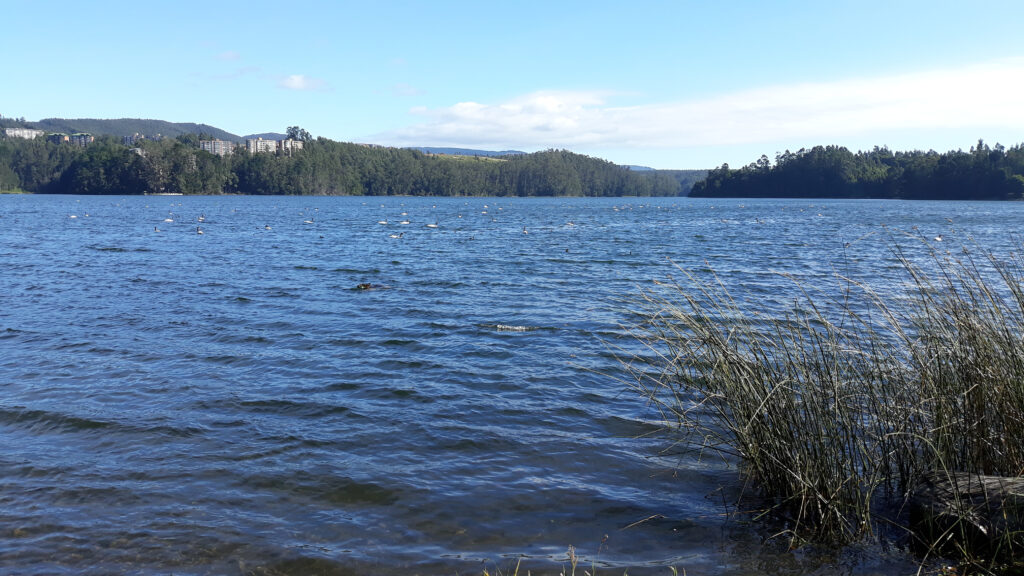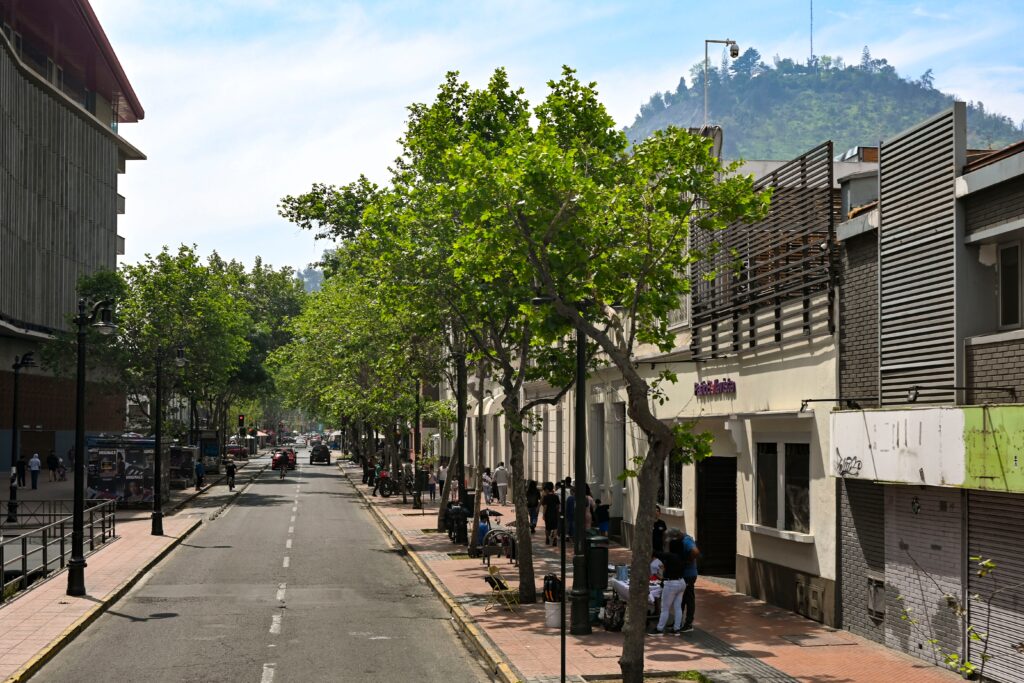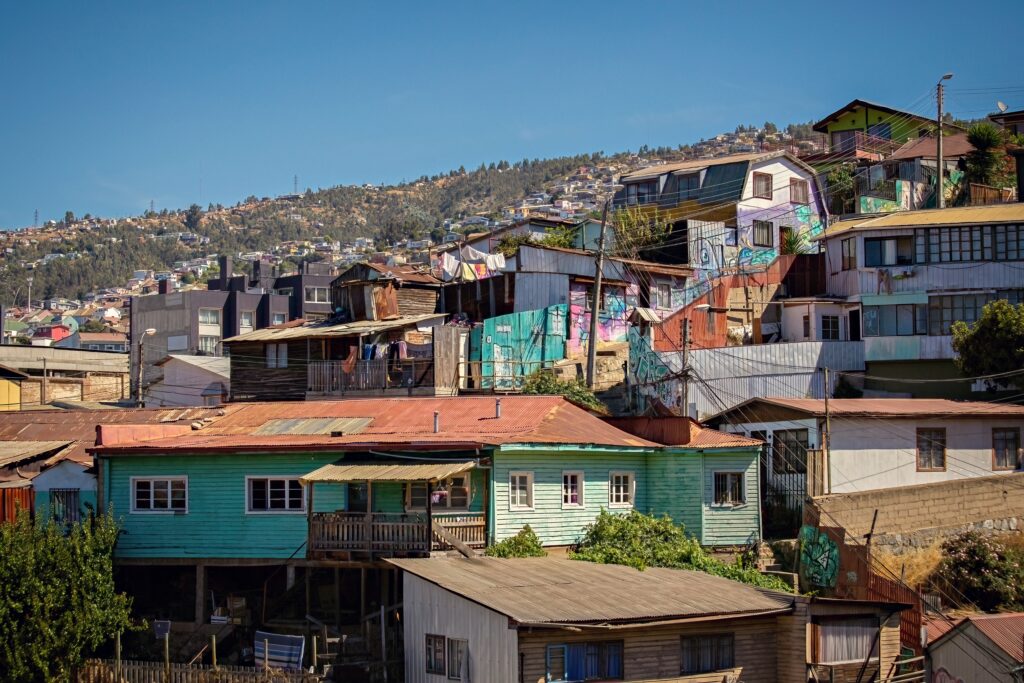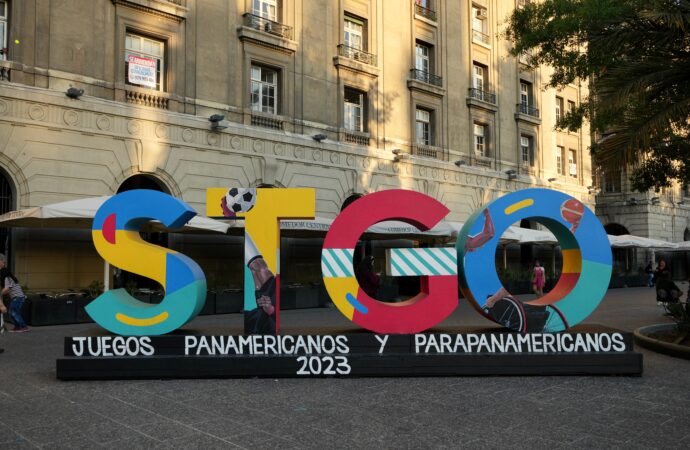At the nineteenth edition of the Pan American Games, we investigate the Chilean context behind the organising committee’s sustainable approach, as well as university research partnerships and a comprehensive waste management plan
Looking onto the San Pedro de la Paz nature sanctuary in Chile’s Biobío region, it wouldn’t immediately strike anyone as a sports venue.

It is an “absolutely beautiful lake”, legacy and sustainability deputy director of Santiago 2023 Alejandro Bacot describes to The Sustainability Report.
It didn’t strike locals as a sports venue, either, but their hesitancy didn’t put Bacot off the idea of hosting rowing, canoeing and kayaking events for the nineteenth edition of the Americas’ competition there.
“It had to be one of the most sustainable operations in the history of Chilean sporting events” to make it happen, Bacot continues.
Rowing canoeing and kayaking qualifications – held one year ahead of Santiago 2023 – were positioned as a sustainable test event. This included state-of-the-art electric catamarans and generators, soundproof equipment, and a series of environmental education and training programs for volunteers, staff and the public, coordinated with the Regional Government and the Municipality of San Pedro de la Paz. The Environmental Sciences Center (EULA) of the University of Concepción assisted by carrying out studies of local flora and fauna.
After successfully preserving the sanctuary’s biodiversity in both qualifications and final Santiago 2023 events, “now everyone involved is happy to host events there in the future,” declares Bacot, “especially the people who participated!”
12 different universities conducted 25 different studies in the lead up to Santiago 2023, and Bacot says these university partners and their experts were “fundamental” to the overall event’s success, as collecting the data within such a small organising committee was impossible.
In fact, approaching sustainability in such a holistic and collaborative manner – not only in natural venues like San Pedro de la Paz – encompassed the organising committee’s ambitious approach to the entire event, making Santiago 2023 the most environmentally minded PanAm Games ever held.
From turmoil to green recovery
Held in October and November 2023, over 9,000 athletes participated in 39 Pan American and 17 Parapan American sports, joined by more than 17,000 volunteers, 1 million spectators, and 200 million television viewers around the world.
Bacot acknowledges the sheer size of Santiago 2023 made the small organising committee’s ambitions ever more daunting, and that’s without considering the tumult in Chile over the years preceding the event.
At the end of 2019, a polarised political environment and widespread discontent overshadowed the nation. The global impact of the COVID-19 pandemic compounded these issues, leading to socioeconomic repercussions that seriously affected Chileans’ finances.
But as part of Chile’s recovery plan for the pandemic, the Ministry of Environment committed 30% of additional resources from the public investment program to sustainable and green projects, affirming the country’s commitment to climate goals.
Before the onset of COVID-19, Chile’s energy transition strategy had already evolved towards green policies, driven by a combination of political support and continuing green tech innovation. In 2022, Chile became the world’s first nation to use sovereign debt (a US$2 billion sustainability-linked bond offering) to fund its long-term climate initiatives, geared towards increasing Chile’s use of renewable energy. It’s clear that the government recognised their need of support to achieve the country’s target of converting 70% of its total energy consumption to renewables by 2030.
What’s more, Chileans support going green. In a 2022 Yale Program for Climate Change Communication survey, 91% believed that climate change should be treated as a government priority. Chile’s metropolitan region is home to over 7 million people (40% of Chileans live in Santiago) who all face water access challenges as the country’s water deficit increases as a consequence of climate change.

Santiago 2023, therefore, presented an opportunity to bring Chileans around the nation’s green agenda. Bacot expresses his amazement that most events were full capacity, despite tickets being as low as 5 CLP (Chilean peso) for athletics. “It was a completely different environment for families with children than the environment of soccer,” which can become violent.
To spread Santiago 2023’s sustainability agenda to the wider public, Bacot believes the best ambassadors of the approach were athletes: “They didn’t need to show an explicit understanding of sustainability to make sustainable choices, like using environmentally friendly transport.”
For instance, the athlete village was in Cerrilos, a suburb in southwest Santiago, making line six of the subway the quickest route to the national stadium in the east of the city. For the opening ceremony, buses weren’t required as over 5,000 athletes travelled to the stadium on line six in under an hour, according to Bacot.
After Lucas Nervi won gold for Chile in discus, he also travelled back to the athlete village on the subway and received an ovation from fellow passengers.

Bacot describes how many people working on behalf of Santiago 2023 had limited understanding of sustainability concepts. Along with the communications team, the organising committee sought to improve this in the lead-up to the event by preparing a calendar of key dates where different environmental awareness and education campaigns were developed, an example being World Water Day on March 22nd to commemorate the measures adopted in the San Pedro de la Paz nature sanctuary.
Closing the loop
Through evolving legislation, long-term funding, and financial support from both public and private entities, Chile is edging towards a circular economy system. A significant milestone in this process was establishing the Circular Economy Office in the Ministry of the Environment in 2018.
Historically, most of the waste generated by large events in Chile – not only sports – ended up in landfill. The entry into force of extended producer responsibility (EPR) law in Chile in 2016, however, obliges manufacturers of lubricant oils, electronic devices, batteries, containers and packaging, tyres, and small batteries to recover a percentage of these items once their useful life ends.
Miyuki Mabe, head of clean and waste at Santiago 2023, expresses how EPR offered a “great opportunity” to form the foundation of Santiago 2023’s waste management plan and invite brands and sponsors to recover their waste.
Mabe’s clean and waste department ensured that supplier policy was clearly defined in each stage of the waste management plan, including the necessity for suppliers to declare how much waste it generates, what type of waste it generates, and its final destination. Each supplier that signed a contract with Santiago 2023 agreed to comply with this policy, and training was also carried out by the clean and waste department to enable suppliers to fulfil this promise.
After establishing 56 recycling points across competition, non-competition and training venues, appropriate EPR waste was separated and delivered to the brands and sponsors that generated it. Under this “concept of responsibility”, Mabe says that “strategic alliances” were established with sponsors and brands that had presence in the national Chilean market to produce circular economy campaigns aimed at the general public.
“I think it’s essential to understand that in the end, recyclable waste is raw material to generate the same or other products,” reminds Mabe, which includes making the most of opportunities – both fortunate and unfortunate – when they present themselves. On the one hand, apartment units that were built in Cerrilos to house Santiago 2023’s athletes were sold to vulnerable families, allowing more than 6,000 people to live in high quality housing compared to before the event. On the other, Santiago 2023 organisers donated all the furniture used in the athlete village to people affected by the fires in the Valparaíso region at the beginning of February.
In such ways, Santiago 2023 unquestionably left an indelible mark on Chileans that will continue to reverberate.

Opt into our weekly newsletter for exclusive content focused on sustainability strategy, communication and leadership for sport’s ecosystem.










Leave a Comment
Your email address will not be published. Required fields are marked with *